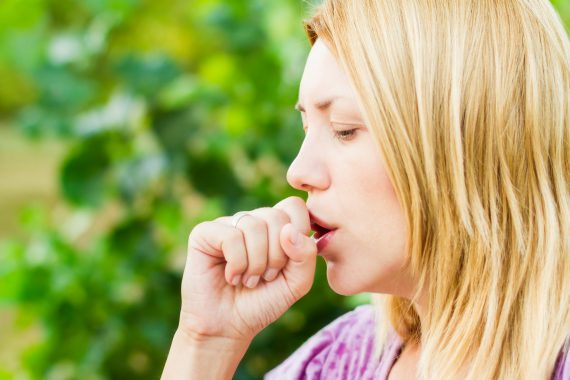How Covid-19 spreads
What is the source of the virus?
Covid-19 is caused by a coronavirus called SARS-CoV-2. Coronaviruses are a large family of viruses that are common in people and may different species of animals, including camels, cattle, cats, and bats. Rarely, animal coronaviruses can infect people and then spread between people. This occurred with MERS-CoV and SARS-CoV, and now with the virus that causes Covid19. More information about the source and spread of Covid-19 is available on the Situation Summary: Source and Spread of the Virus.
How does the virus spread?
The virus that causes Covid-19 is thought to spread mainly from person to person, mainly through respiratory droplets produced when an infected person coughs or sneezes. These droplets can land in the mouths or noses of people who are nearby or possibly be inhaled into the lungs. Spread is more likely when people are in close contact with one another (within about 6 feet).
Covid-19 seems to be spreading easily and sustainably in the community (“community spread”) in many affected geographic areas. Community spread means people have been infected with the virus in an area, including some who are not sure how or where they became infected.
Learn what is known about the spread of newly emerged coronaviruses.
Can someone who has Covid-19 spread the virus to someone else?
The virus that causes Covid-19 is spreading from person-to-person. People are thought to be most contagious when they are symptomatic (the sickest). That is why CDC recommends that these patients be isolated either in the hospital or at home (depending on how sick they are) until they are better and no longer pose a risk of infecting others. More recently the virus has also been detected in asymptomatic persons.
Can someone who is quarantined for Covid-19 spread the illness to others?
Quarantine means separating a person or group of people who have been exposed to a contagious disease but have not developed illness (symptoms) from others who have not been exposed, in order to prevent the possible spread of that disease.
Quarantine is usually established for the incubation period of the communicable disease, which is the span of time during which people have developed illness after exposure. For Covid-19, the period of quarantine is 14 days from the last date of exposure because the incubation period for this virus is 2 to 14 days. Someone who has been released from Covid-19 quarantine is not considered a risk for spreading the virus to others because they have not developed illness during the incubation period.
Can the virus that causes Covid-19 be spread through food?
Coronaviruses are generally thought to be spread from person to person through respiratory droplets. Currently, there is no evidence to support transmission of Covid-19 associated with food. Before preparing or eating food it is important to always wash your hands with soap and water for at least 20 seconds for general food safety. Throughout the day use a tissue to cover your coughing or sneezing, and wash your hands after blowing your nose, coughing or sneezing, or going to the bathroom.
It may be possible that a person can get Covid-19 by touching a surface or object, like a packaging container, that has the virus on it and then touching their own mouth, nose, or possibly their eyes, but this is not thought to be the main way the virus spreads.
In general, because of poor survivability of these coronaviruses on surfaces, there is likely very low risk of spread from food products or packaging.
Learn what is known about the spread of COVID-19.
Will warm weather stop the outbreak?
It is not yet known whether weather and temperature affect the spread of Covid-19. Some other viruses, like those that cause the common cold and flu, spread more during cold weather months but that does not mean it is impossible to become sick with these viruses during other months. There is much more to learn about the transmissibility, severity, and other features associated with Covid-19 and investigations are ongoing.
What temperature kills the virus that causes Covid-19?
Generally coronaviruses survive for shorter periods at higher temperatures and higher humidity than in cooler or dryer environments. However, we don’t have direct data for this virus, nor do we have direct data for a temperature-based cutoff for inactivation at this point. The necessary temperature would also be based on the materials of the surface, the environment, etc. Regardless of temperature please follow CDC’s guidance for cleaning and disinfection.
Source: Center for Disease Control and Prevention, Coronavirus Disease 2019 Basics, FAQs [accessed 3 April]

















